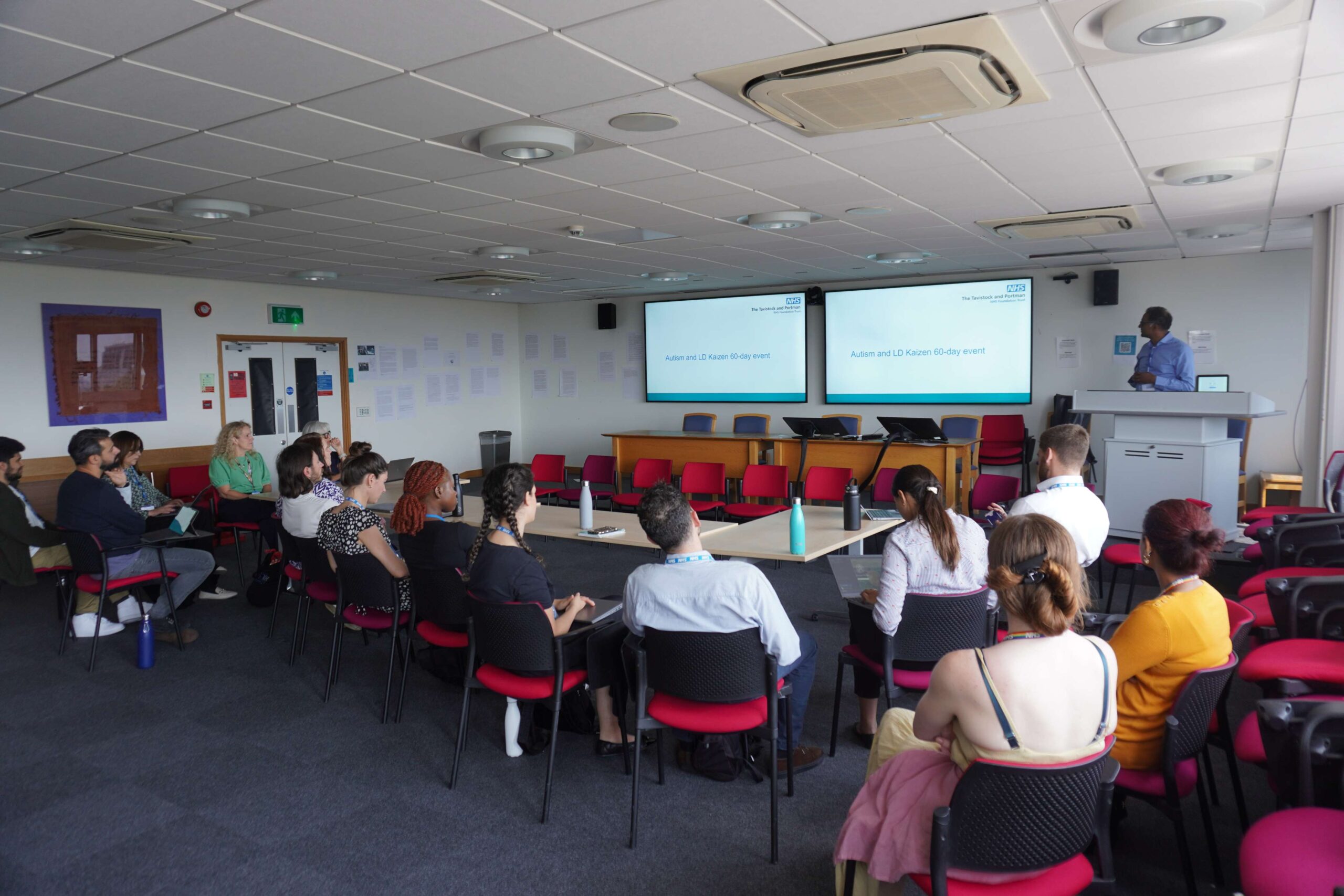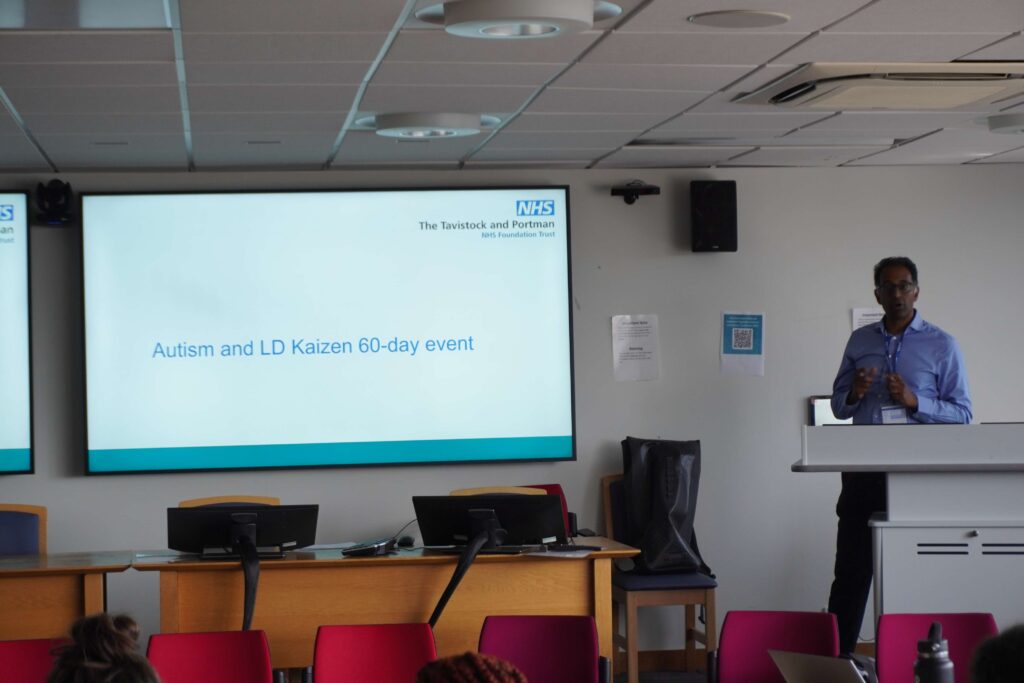
News
Quality improvements in autism and learning disabilities service
This week the autism and learning disabilities service team participated in their third Kaizen event, intended to give a 60-day update. The Kaizen quality improvement approach follows a four-step series that begins with an initial kick-off event, followed by three subsequent update sessions 30, 60 and 90 days later.
‘Kaizen’ is a Japanese portmanteau word, the combination of ‘kai’ meaning ’change’ and ’zen’, meaning ‘good’. This translates as ’good change’ and is synonymous with continuous quality improvement. The Kaizen philosophy is that everyone should be involved in improvement, from administrative staff to an organisation’s Chief Executive Officer.
Our Trust uses the Kaizen approach to run improvement events where the A3 improvement methodology is used. During Kaizen events, a team comes together to work towards agreeing on the areas of improvement the service needs.
A3 improvement methodology is a problem-solving and continuous improvement approach. The term “A3” refers to the size of the paper traditionally used to present information in a structured and concise manner. The A3 paper thus serves as a central document.
This week’s 60-day event began with an open address by Myooran Canagaratnam, Director of Medical Education and Assessment Clinic Lead. He discussed some of the previously assigned tasks that have been successfully implemented.

The weekly Kaizen huddles were identified as an efficient way to monitor improvements in the service. They also saw it as offering the team the opportunity to assess any successes or failures from the previous week.
Three problem areas identified in the previous Kaizen sessions were the need to reduce missed appointments, improve efficiency in report production and transform the triage system. At the initial Kaizen event in May, the team were divided into three groups and given one of the problem areas to focus on.
The group which focused on report production identified an issue with the length of time that families spent on the assessment pathway and spoke of the need for measures to be taken at each stage to improve efficiency. It was agreed that metrics would be used to access progress and to monitor the time taken from a family’s initial meeting with clinicians to assessment, the assessment stage to feedback, and finally from the feedback stage to the report being produced.
The group which focused on optimising the triage system spoke of the need for all referrals to be screened and triaged efficiently. Some of the targets they set included a 4 week wait for a first appointment and a reduction in the time that an Assessment Lead spent triaging.
Overall there was an acknowledgement of current challenges across the service such as the high volume of cases – in July there was a total of 32 referred cases with an average of 8 per week. Also, they discussed the challenge for clinicians, as their time was overwhelmingly taken up with referral management and the administrative tasks involved with each triage appointment.
Several successes were highlighted during this 60-day session. For example, clinicians had been informed of the importance of booking appointments well in advance and, as a result, they had been able to schedule multiple text reminders to service users. These text reminders which have recently been implemented have been found to significantly help reduce the number of missed appointments.
Canagaratnam reflected on how the Kaizen event had “provided the opportunity to not only review progress over the last 30 days but [also] place it in the context of the other work underway in the trust, to address wait times for autism assessment. It also is a space to talk about specific challenges experienced by staff.”
Quality improvement events such as Kaizen are of the utmost importance as healthcare systems and institutes of higher education, such as ours, are built on a complex network of processes and pathways. The quality of care and teaching delivered by the healthcare system depends on how well this network functions, and how well the professionals work together.
At the final 90-day event, scheduled for September, the team will reconvene to reflect on all of the targets they set and to identify the overall improvements made since they began the Kaizen approach in May.
